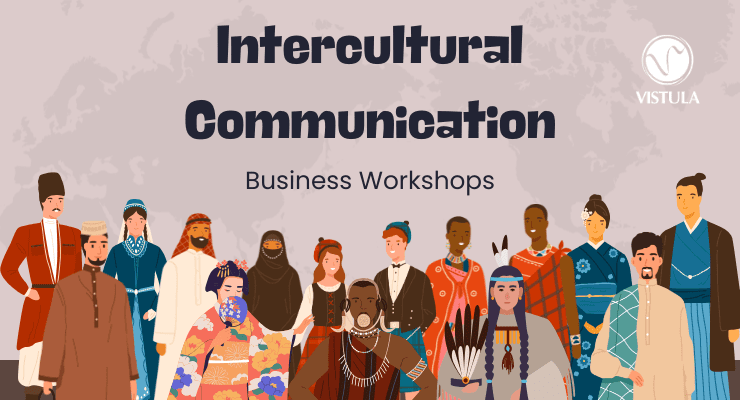When a Gesture Speaks Louder Than Words – Intercultural Communication Workshops for Business

How do you convey something important without offending anyone? How can you recognise that a handshake, eye contact or even silence may carry completely different meanings in Warsaw, Cairo and Taipei? Participants in the workshop “Cultural Determinants of Communication” learned this and much more. The session was led by Marta Kozak-Gołębiowska, Director of the Centre for Digital Education and a lecturer in intercultural communication at Vistula University.
Cultural diversity is not a challenge—it is an advantage, provided you understand it
During the workshop, participants explored differences in values, gestures, facial expressions, interpersonal distance and attitudes toward personal space. They discovered why, in some countries, a handshake is not always welcome or expected, and why a Polish marketing campaign that “plays on emotions” might fall flat in Taiwan, where composure and restraint prevail.
They also examined how people literally—and figuratively—read meaning: left-to-right, right-to-left or even top-to-bottom. Whether it is the contrast between an “owl” and a “dragon,” or the symbolism of colours (e.g., red signifying joy and prosperity in China but aggression or excitement elsewhere), the message was clear: communication is not a universal language but a system deeply rooted in cultural context.
“Communication is far more than the words we speak. Everything we do is a form of communication. That is why respect for another person’s otherness is the cornerstone of genuine understanding. Only through mutual respect can we communicate effectively,” explains Marta Kozak-Gołębiowska.
Beyond stereotypes—the value of a shared language
An important theme was stereotypes and prejudice: how they shape communication and how to defuse them in everyday collaboration. In the workplace, stereotypes can lead to misinterpretations, tension and even exclusion. For instance, silence may signal respect in one culture but a lack of engagement in another. Without awareness of such differences, misunderstandings arise easily.
The workshop offered concrete tools for dismantling bias in daily interactions—both individually and organisationally. A key takeaway was that appealing to a company’s shared values, and to the language of emotion and empathy, can create a work culture where everyone feels seen and understood, regardless of nationality, religion or communication style. As Marta Kozak-Gołębiowska advises:
“It is vital to remember that every culture is grounded in specific values. We cannot expect others to abandon what matters most to them. What we can do is search for common values while respecting the differences between us”.
Business needs more than competence—it needs empathy
This was no ordinary “PowerPoint lecture” but a hands-on workshop that will stay with participants for a long time. Our corporate partners gained not only knowledge but also practical tools to better support our students during internships and to build culturally diverse teams on solid foundations. As an international university, we respond actively to our partners’ needs, organising practical training and helping them cultivate future-proof skills—skills that foster communication, mutual understanding and collaboration in diverse teams. Marta Kozak-Gołębiowska sums it up:
„The multicultural nature of our university is above all a rich source of knowledge and experience that we can draw on—and share with others.”